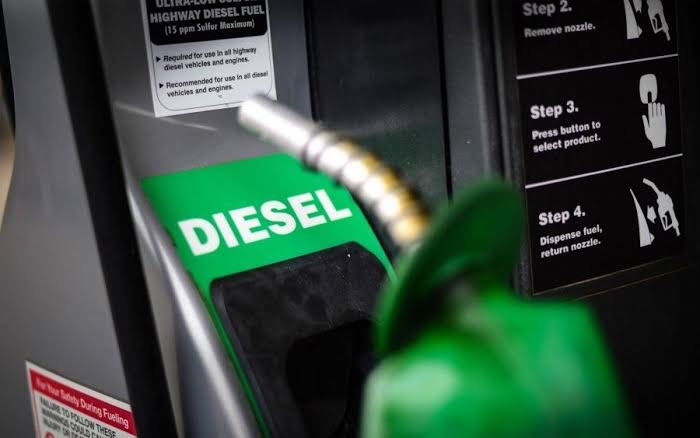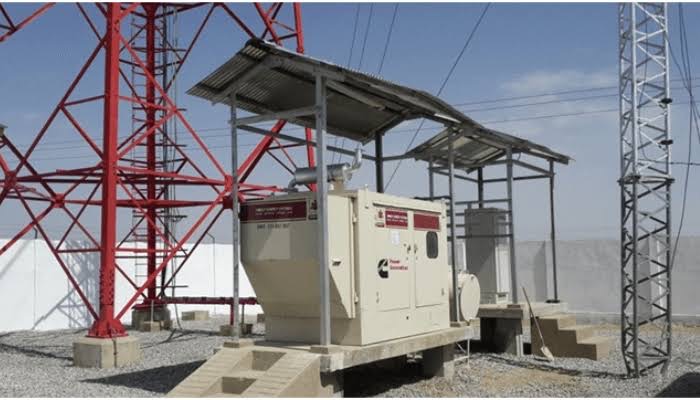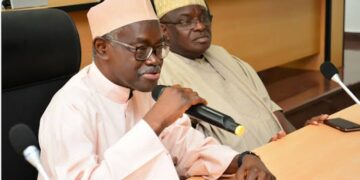Telecommunications companies in Nigeria are increasingly turning to renewable energy sources as they grapple with the surging cost of diesel, which has now reached a staggering N56.24 billion per month in operational expenses. The rising costs have put immense pressure on telecom operators, forcing them to seek alternative energy solutions to power their operations and maintain service delivery.
The Association of Licensed Telecommunications Operators of Nigeria (ALTON) has highlighted that diesel constitutes a significant portion of the industry’s operating costs, accounting for about 35 percent of telecom expenses. The reliance on diesel is primarily due to Nigeria’s unreliable electricity supply, necessitating off-grid power solutions like generators to ensure continuous operation of telecom sites.

According to industry estimates, telecom operators use an average of 40 million liters of diesel each month to power their sites. The price of diesel has seen a sharp increase, jumping from N854.32 per liter in August 2023 to N1,406.05 per liter in August 2024, according to data from the National Bureau of Statistics (NBS). This represents a 64.58 percent increase within a year, and it translates to a significant rise in the cost of powering Nigeria’s telecommunications infrastructure. In August 2023, the cost was estimated at N34.17 billion, but by August 2024, it had surged to N56.24 billion.
As of the end of 2022, the Nigerian Communications Commission (NCC) reported that there were 34,862 towers and 127,294 base stations across the country. Industry insiders have revealed that each base station typically requires two generators for operation. Given the energy demands, telecom operators collectively spent N2.09 trillion on operational expenses in 2022, as per the last set of data released by the NCC.
Gbenga Adebayo, President of ALTON, affirmed that diesel consumption continues to rise, stating, “It will be over that now.” This is a reflection of the growing operational costs telecom companies face as they power their expansive networks. Harmanpreet Dhillon, the chief technical officer at Airtel Nigeria, disclosed that the company spent N28 billion on diesel as of May 2024, underscoring the heavy financial burden imposed by the cost of energy.
In response to these escalating costs, many telecom operators are actively exploring hybrid energy solutions, including lithium batteries and solar power, in a bid to lower their energy expenses. During a media roundtable, Dhillon confirmed Airtel’s commitment to adopting renewable energy to mitigate its reliance on costly diesel-powered generators.
According to a recent report by McKinsey, companies could potentially save up to 30 percent on their energy costs by adopting renewable energy solutions and incorporating innovative technologies. This presents a significant opportunity for telecom operators in Nigeria, who are currently burdened by high energy expenses. “The biggest constraint in the telecom industry is high energy cost. If the government had continued to fulfill its part of the bargain it made in the early 2,000s to provide 18 hours of electricity, the heavy logistics and the capital we spend today from powering sites would not be there,” explained Adebayo.
He further stressed that these energy challenges pose a threat to the sustainability of the sector. In its 2023 audited financial results, MTN Nigeria Communications Plc outlined how the combined effects of “naira devaluation, higher inflation, and rising energy costs” have contributed to the increase in its operating expenses.
The strain of high energy costs was evident in May 2022, when telecom companies requested a 40 percent increase in the prices of calls, SMS, and data services to offset their rising operating expenses. At the time, telcos cited that their energy costs had risen by 35 percent, reflecting the unsustainable financial pressure the industry was under. MTN Nigeria’s CEO, Karl Toriola, went on to declare that the telecom industry was “in a big crisis,” driven by these escalating costs.

Aside from Airtel, other telecom companies are also transitioning to alternative energy sources such as solar, lithium batteries, compressed natural gas (CNG), and liquefied petroleum gas (LPG) in order to reduce their dependence on diesel. However, as Adebayo of ALTON pointed out, “Even when you have alternative energy, they do not provide 24-hour backup; you must get other energy sources.” This emphasizes that while renewable energy solutions are being explored, they are not yet sufficient to fully meet the sector’s energy demands.
In 2023, WATT Renewable Corporation, the parent company of First WATT Renewables Limited, signed a $13 million deal with Empower New Energy aimed at reducing diesel consumption across the telecom sector. “To start off, we are looking at modernising over 200 telecom sites within 10 months and part of that plan is to reduce consumption of diesel by 3 million litres on an annual basis,” stated Oluwole Eweje, CEO of WATT Renewable Corporation. This initiative is part of broader industry efforts to move towards more sustainable energy solutions.
Kazeem Oladepo, vice president of IHS Towers, has also acknowledged the growing need for alternative energy sources. While diesel remains a major energy source for telecom towers, many companies, including IHS Towers, are integrating renewable energy solutions such as solar power, LPG, CNG, and other energy-efficient technologies. This transition aligns with the industry’s broader goal of reducing energy costs and environmental impact.
During an Industry Spotlight webinar, Chukwuebuka Ezewuzie, senior manager of growth and new business tech platforms at MTN Nigeria, shared insights into the company’s efforts to adopt renewable energy. “A lot of advancement is going on at the moment in adopting renewable energy because the infrastructure running on diesel and petrol is massively expensive. So, how are we going to use the free energy from the sun and the wind to power this equipment to reduce cost? This is one of the key areas that the telcos are currently exploring,” he said.
Chris Wood, CEO of West Indian Ocean Cable Company (WIOCC), also emphasized the importance of alternative energy sources, noting that other renewable options such as tidal and wind power could play a role in developing a more sustainable energy mix. “It is not just about solar energy but all levels of sustainable power, including the gas supply,” he remarked, highlighting the industry’s evolving focus on diverse renewable energy sources.
Adebayo of ALTON noted that infrastructure companies, known as “infracos,” are particularly vulnerable to the rising diesel costs, which has prompted operators like MTN to renegotiate their contracts with tower companies such as ATC and IHS. Energy considerations were central to these renegotiations, as telecom companies seek to reduce operational costs and transition towards greener energy solutions. “But beyond efficiency, we will also focus on cost optimisation, green energy utilisation, and sustainability,” said Toriola of MTN, reaffirming the company’s commitment to a more sustainable energy future.
Despite the promise of renewable energy, the shift is not without challenges. Adebayo pointed out that theft remains a major obstacle. “People steal solar cells and batteries,” he noted, adding that while renewable energy has the potential to reduce costs, the security of these installations remains a concern. As the telecom industry continues to explore renewable energy options, experts suggest that service costs will likely need to be adjusted to ensure the long-term sustainability of the sector amidst fluctuating energy prices and rising operational expenses.



































